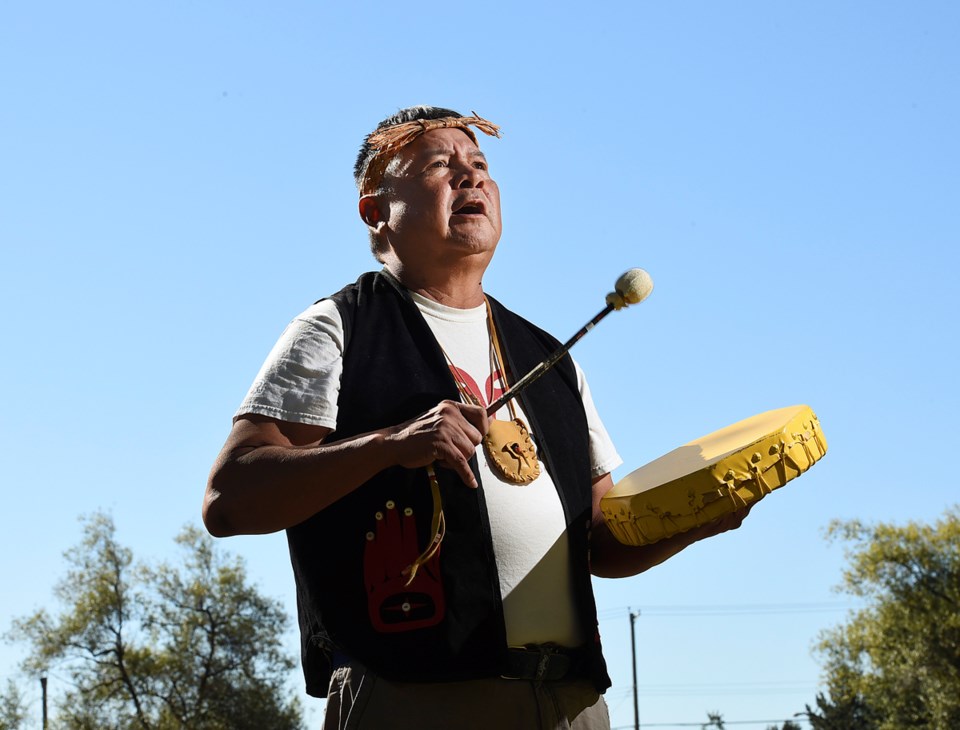Even though he was only four years old at the time, Gordon August can clearly remember the day he was taken from his family at Sechelt Nation.
It was 1961, and Indian Agents arrived at his grandparents’ home, grabbed him by his long hair and forced him into their car.
“I remember hitting the window and crying, and my grandmother was crying,” August recalls now.
“It was a day I’ll never forget because I never knew what anger was until that day.”
August was separated from his parents, seven brothers and seven sisters, in a forced adoption that was part of an assimilative government policy now known as the Sixties Scoop.
Between the 1960s and 1980s, an estimated 20,000 Indigenous children were forcibly removed from their homes and adopted out, mostly to white families.
For August, it triggered many years of turbulence: he was forced to live with abusive adopted parents, spent time in a residential school, and eventually was transferred between 27 other foster families after running away at the age of 12.
He eventually found some stability with a family in North Vancouver, but he could never find all 14 of his siblings, even after two decades of trying.
He even travelled to Ottawa and Victoria in an effort to have government records on Sixties Scoop adoptions shown.
“[Before she died] my grandmother said to me, ‘Let it go. When the time is right, your family will come together,’” August said.
So he let it go, and began healing from his anger by reconnecting with Coast Salish culture in the late 1990s.
The words of his grandmother began to come true about a decade later, when August was preparing to perform at one of several events hosted by Aboriginal Tourism BC for the Vancouver Olympics with a group of other First Nations dancers.
He was on his way to the dressing room to change into regalia when a woman working with Aboriginal Tourism B.C. approached him.
The woman told August that one of her coworkers, Linda Epp, had just received official documents revealing the identities of her birth parents. Their last names were August, too, and they were from the same nation as him — Sechelt. The woman then located Epp on the premises and introduced her to August.
Epp showed him the papers.
“I turned around and I said, ‘I guess... I’m your older brother,’” August remembers.
“Not even 10 seconds later tears were just rolling out of my eyes.”
He introduced the woman believed to be his sister to the group of about 50 other dancers, who later dedicated a special song at the Olympic event to the two siblings.
August recalls it as an incredibly emotional experience.
“The whole place got quiet,” he said.
“I looked down at my sister and said, ‘All these years I knew I had seven sisters, I only ever knew two of them.’”
Even though August didn’t know it at the time, it was the start of a fateful journey that has led him to reconnect with whom he believes to be all of his 14 siblings — not to mention countless cousins.
“Over the last 10 years, I’ve met more family then I ever knew I had,” August said.
Another notable reunion happened in March of 2015, when he reconnected with a brother who lived on Keats Island but by coincidence had won a lottery in Sechelt.
“He had decided to buy a ticket for the draw because he was in Sechelt with his uncle who was buying bullets,” August said.
When he was back to collect his prize, a member of Sechelt Nation thought he looked familiar and connected him to August, who said he found out he was likely his brother after a phone conversation from Vancouver.
Within the past year, he’s also tracked down several others though the band, and, sadly, buried two sisters he never knew.
He found out about them through phone calls from the Victoria hospital where they died.
August said they died without connecting with their nation, something that’s common for many other families. And it can be scary to go home, for fear of not being accepted.
“I didn’t know [my sisters], but I know they lived in pain not knowing about where they were from,” he said.
This Christmas, August hopes to host a gathering with all of his remaining siblings, including two who he’s only so far interacted with via text messages.
August smiles talking about the gathering, something he has been waiting for his entire life.
“A lot of things happened to our people with scoop of the ’60s and a lot of people still hurt today,” he said.
“Today I can talk about it, but sometimes I still have the emotions of the things I went through, with others.”
He has lost a lot, including never getting to know either of his parents before they died, but he said culture is what saved him.
August, who comes from a lineage of hereditary chiefs, is now intensely connected to his nation and birth family through ceremonies.
But if you tell him that his abilities or experiences are amazing, he will correct you.
“It’s the culture that’s amazing,” he said.
caradawnmckenna@gmail.com
@CaraMcK


